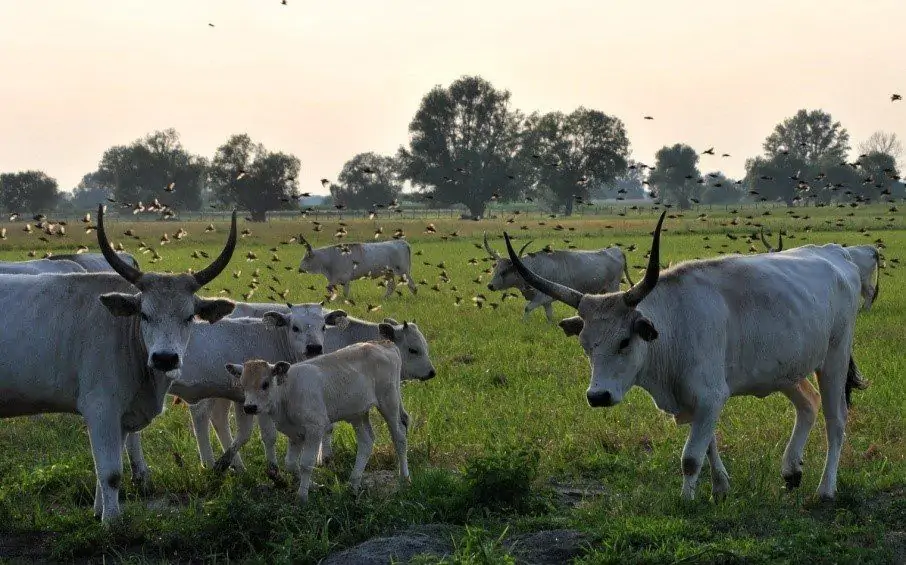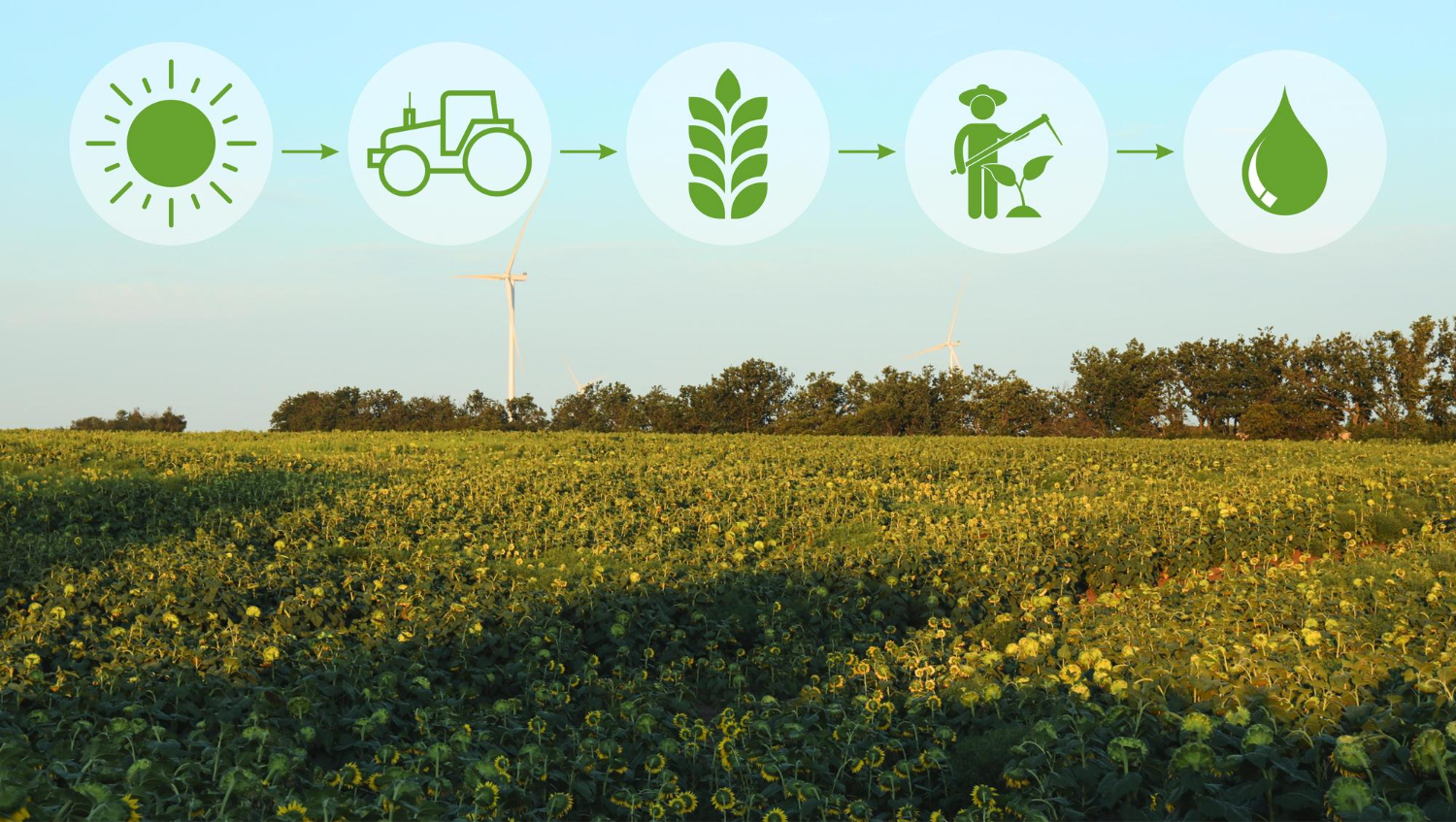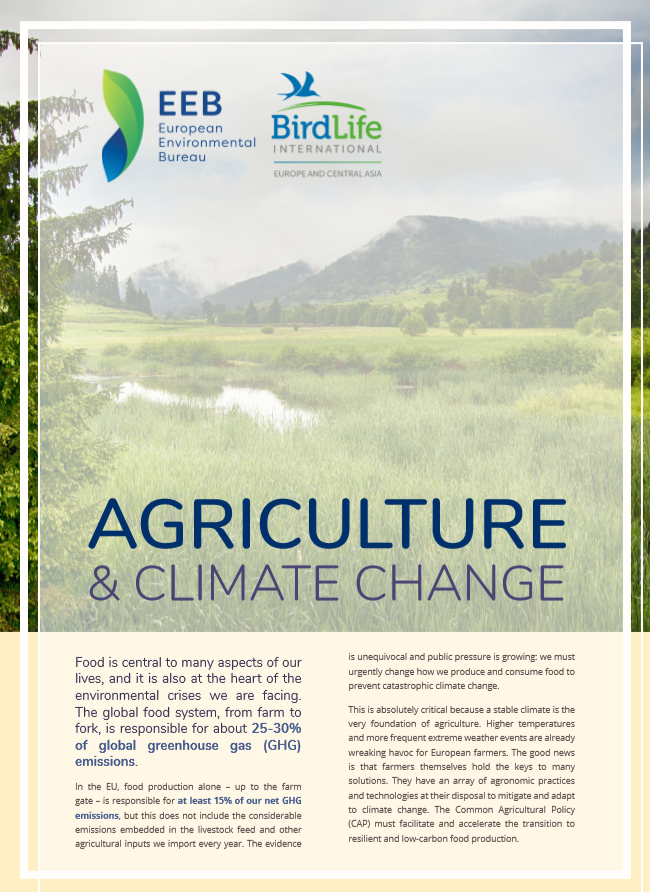An Unavoidable Step after Paris: Cutting Emissions from Farming
The project is completed. Through national and European workshops and subsequent communication work, an increased public and political awareness around the need for an ambitious legislative framework on climate and agriculture (national plans, governance and CAP) was created.
Agriculture Carbon Removals and Sinks

Project info
France, Germany, Hungary, Ireland, Spain
11/17 - 02/20
National governments, EU institutions, Private sector, Non-governmental organisations
350,000.38 €
Contact info
Faustine Bas-Defossez
-
- BirdWatch Ireland
- CEEweb for Biodiversity
- France Nature Environnement
- Germanwatch e.V.
- Instituto Internacional de Derecho y Medio Ambien-te (IIDMA)
- Stichting Birdlife Europe
Background
While agriculture accounts for around 10% of the EU’s greenhouse gas emissions and is among the first sectors to bear the costs of disastrous climatic events, it is also perceived as a sector with limited mitigation potential in the current debate and very little has been asked of the farming sector regarding climate change mitigation. While the EU’s climate legislation is currently under co-decision, the debate about the reform of the Common Agricultural Policy (CAP) has only just begun, with a communication by the European Commission on the CAP post 2020 having been published in November 2017. Since the CAP uses a large part of the European budget and has shaped farming practices over Europe for the past decades, it can also play a crucial role in facilitating the transition towards a more sustainable and climate friendly farming sector. However, this will only be possible if the next CAP is inclusively debated with the farming community, is mindful of the environment, consumers, health issues etc. based on evidence, and is properly aligned with the European climate legislation and other policy objectives of common interest.

Project
In order to create a forward-looking agriculture sector that makes a significant contribution to the EU’s climate mitigation efforts, a solid knowledge base is needed as well as knowledge sharing and inclusive stakeholders’ dialogue. This includes a national and EU-wide evidence-based set of data on farming potential towards climate mitigation including socio-economic components, but also a policy analysis assessing to which extent this potential is currently achieved or underachieved and what role the current farming policy (CAP) plays in it and should play in the future. This study and policy assessments fed into dialogues between key stakeholders (farmers, NGOs, scientists, industry, etc.) at national and pan-European levels on climate friendly practices in order to facilitate the sharing of experiences. Through national and European workshops and subsequent communication work, an increased public and political awareness around the need for an ambitious legislative framework on climate and agriculture (national plans, governance and CAP) was created.
Results
- The project increased awareness of and knowledge about the need for and potential of climate action in agriculture by collecting data, promoting dialogues, networking and knowledge sharing, conducting legislative analyses and spreading the outcomes through a wide range of communication outlets.
- The project has advised national and EU decision-makers on the benefits of climate-friendly agricultural policies.
Last update: July 2024

